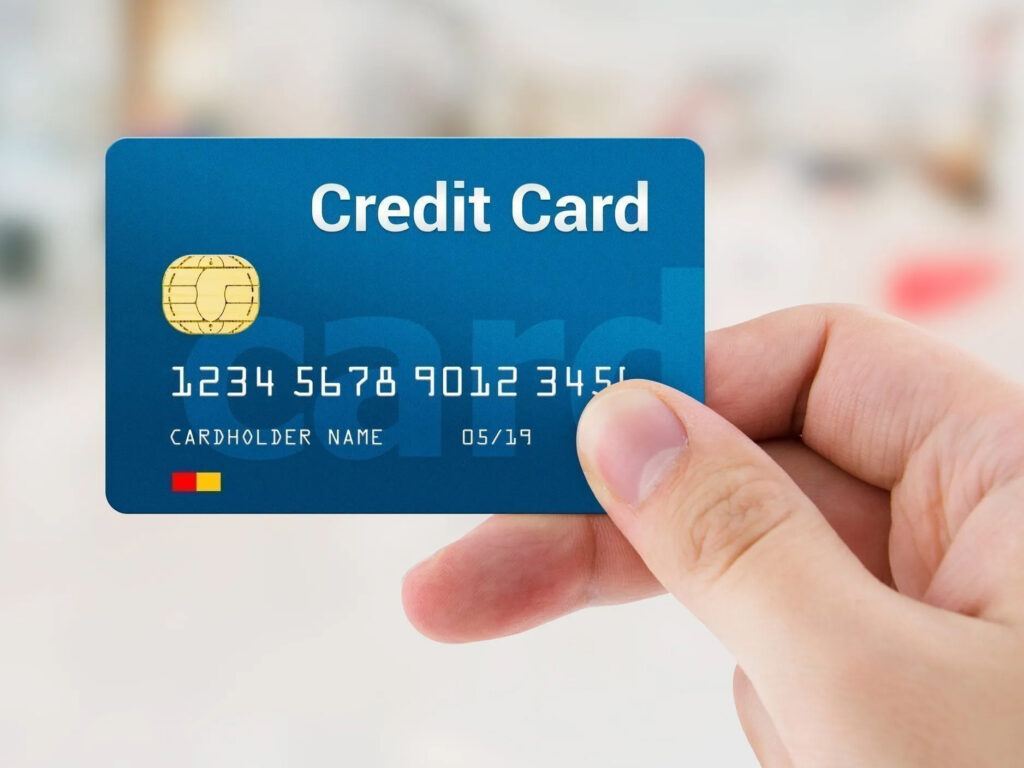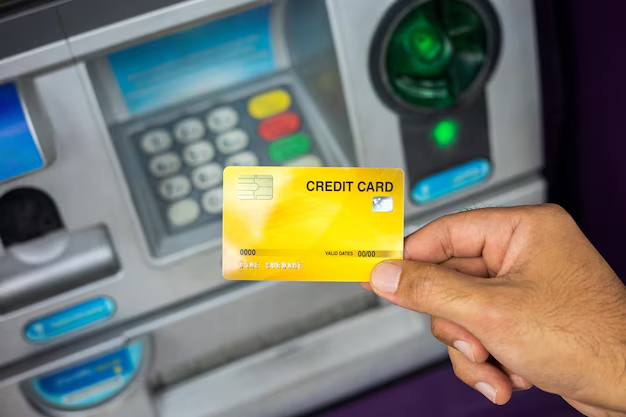Credit card withdrawals come with transaction fees
Credit Card Withdrawals: Credit cards are widely used for their convenience and flexibility, allowing users to make purchases without needing cash on hand. But what happens when you actually need cash? That’s where credit card withdrawals come into play. While credit card withdrawals can be a quick solution to access cash, they come with their own set of pros and cons. In this article, we’ll explore the advantages and disadvantages of credit card withdrawals, helping you make an informed decision before you decide to use this feature.
What Are Credit Card Withdrawals?
Explanation of Credit Card Cash Advances
A credit card withdrawal, often referred to as a cash advance, allows you to withdraw cash using your credit card. Unlike a typical purchase, this transaction essentially functions as a short-term loan, where you’re borrowing against your credit limit. The process is straightforward but comes with its own set of rules and costs.
How Credit Card Withdrawals Work
When you withdraw cash from your credit card, the amount is deducted from your available credit limit. Unlike purchases, cash advances usually begin accruing interest immediately, without a grace period, and often come with higher interest rates. Additionally, there are transaction fees that are either a flat fee or a percentage of the amount withdrawn.
The Process of Credit Card Withdrawals
Steps Involved in Withdrawing Cash from a Credit Card
- Locate an ATM: Find an ATM that accepts your credit card.
- Insert Your Credit Card: Enter your PIN if required.
- Select the Cash Advance Option: Choose the cash advance option on the ATM screen.
- Enter the Amount: Specify the amount you wish to withdraw.
- Confirm and Collect Cash: Confirm the transaction and collect your cash and receipt.
Different Methods to Withdraw Cash
Apart from using an ATM, you can also withdraw cash directly from a bank or through convenience checks that your credit card company may provide. Each method may have different fees and limitations, so it’s important to understand the terms before proceeding.
Advantages of Credit Card Withdrawals
Convenience
One of the biggest advantages of credit card withdrawals is the convenience they offer. You can access cash quickly and easily, without the need to apply for a loan or go through a lengthy approval process.
Immediate Access to Cash
In situations where you need cash instantly, a credit card withdrawal can be a lifesaver. Whether you’re traveling or facing an emergency, this option gives you immediate access to funds.
Emergency Situations
Credit card withdrawals can be particularly helpful in emergencies, such as unexpected medical bills or urgent repairs. The ability to get cash quickly without needing to wait for a loan approval can make a significant difference in such situations.
No Need for a Bank Account
For those who do not have a traditional bank account, credit card withdrawals offer a flexible option to access cash. You don’t need to worry about maintaining a minimum balance or dealing with overdraft fees.

Disadvantages of Credit Card Withdrawals
High-Interest Rates
One of the most significant drawbacks of credit card withdrawals is the high-interest rates. Unlike regular purchases, cash advances usually come with higher interest rates that start accruing immediately, making them an expensive option for borrowing money.
Explanation of Interest Rates on Cash Advances
Interest rates on cash advances are typically much higher than those on regular credit card purchases. Moreover, there’s no grace period, meaning interest starts accumulating from the moment you withdraw the cash.
Transaction Fees
Credit card withdrawals come with transaction fees, which can quickly add up. These fees are either a flat amount or a percentage of the amount withdrawn, making cash advances an expensive option compared to other borrowing methods.
Understanding the Fees Involved
Transaction fees are usually around 3% to 5% of the withdrawal amount, with a minimum fee that varies by card issuer. These fees, combined with high-interest rates, can make cash advances a costly way to access cash.
Impact on Credit Score
Frequent use of credit card withdrawals can negatively impact your credit score. Since cash advances are viewed as a sign of financial distress, they can raise red flags for lenders and may lower your credit rating.
How It Affects Your Credit Rating
When you withdraw cash using your credit card, it increases your credit utilization ratio, which can harm your credit score. Additionally, if you struggle to repay the cash advance, it may lead to missed payments, further damaging your credit.
Debt Accumulation
Because of the high costs associated with credit card withdrawals, it’s easy to accumulate debt quickly. If not managed carefully, this can lead to a cycle of debt that’s difficult to escape.
Also Read: Credit Card से विड्रॉ: फायदे और नुकसान
Comparison with Other Cash Withdrawal Methods
Credit Card vs. Debit Card Withdrawals
Debit card withdrawals directly access funds in your bank account, while credit card withdrawals are essentially loans with interest and fees. Debit card withdrawals are usually cheaper, but they require you to have funds available in your account.
Credit Card vs. Personal Loans
Personal loans generally offer lower interest rates and more favorable terms than credit card withdrawals. However, they require a formal application process and approval, making them less convenient in emergencies.
Situations When Credit Card Withdrawals Are Useful
Traveling Abroad
When traveling abroad, a credit card withdrawal can be a convenient way to access local currency without needing to find a currency exchange service. However, it’s important to be aware of foreign transaction fees and higher interest rates.
Unexpected Expenses
Credit card withdrawals can be useful for managing unexpected expenses that require immediate attention. Whether it’s an emergency car repair or a last-minute purchase, having the option to withdraw cash can provide peace of mind.
Also Read: GST Council Meeting: कैंसर की दवा पर अब लगेगा 5% GST
When to Avoid Credit Card Withdrawals
Long-Term Debt
Credit card withdrawals are not suitable for long-term financial solutions. The high-interest rates and fees make them an expensive way to borrow money over an extended period.
High-Interest Debt
If you’re already dealing with high-interest debt, adding a cash advance to your financial obligations can make matters worse. It’s advisable to explore other options before resorting to a credit card withdrawal.
How to Minimize the Costs of Credit Card Withdrawals
Paying Back Quickly
To minimize the costs associated with credit card withdrawals, it’s crucial to pay back the amount as quickly as possible. The longer the balance remains unpaid, the more interest you’ll accrue.
Avoiding Frequent Withdrawals
Frequent cash advances can quickly lead to mounting debt. Limiting the use of credit card withdrawals to emergencies can help you avoid unnecessary financial strain.

Alternatives to Credit Card Withdrawals
Personal Loans
If you need to borrow a larger amount of money, a personal loan may be a better option than a credit card withdrawal. Personal loans often offer lower interest rates and more manageable repayment terms.
Overdrafts
For those with a bank account, overdraft protection can be a more affordable way to cover short-term cash needs. Overdraft fees are typically lower than cash advance fees, making this a more cost-effective option.
Borrowing from Friends and Family
In some cases, borrowing from friends or family can be a better option than using a card withdrawal. This option can help you avoid the high costs and interest rates associated with cash advances.
Impact of Card Withdrawals on Your Finances
Short-Term Impact
In the short term, a credit card withdrawal can provide quick access to cash when you need it most. However, the high costs can quickly outweigh the benefits if not repaid promptly.
Long-Term Impact
In the long term, frequent use of card withdrawals can lead to significant debt and a lower credit score. It’s important to carefully consider the long-term impact before using this option regularly.
Tips for Responsible Use of Credit Card Withdrawals
Budgeting
Creating a budget can help you manage your finances and avoid relying on card withdrawals. By planning your expenses and setting aside emergency funds, you can reduce the need for cash advances.
Understanding Your Credit Card Terms
Before using your credit card for a cash advance, it’s essential to understand the terms and conditions. Reading the fine print can help you avoid unexpected fees and high-interest charges.
Withdrawal Myths Debunked
Myth: It’s the Same as a Regular Purchase
Many people mistakenly believe that a credit card withdrawal is the same as making a purchase with a credit card. In reality, cash advances come with higher interest rates and fees, making them a more expensive option.
Myth: It Doesn’t Affect Your Credit Score
Another common misconception is that card withdrawals don’t impact your credit score. However, frequent use of cash advances can increase your credit utilization ratio and negatively affect your credit rating.
Case Studies: Real-Life Examples
Case Study 1: A Traveler’s Experience
John was traveling abroad when he ran out of local currency. Instead of searching for a currency exchange, he used his credit card to withdraw cash from an ATM. While it provided the convenience he needed, he was surprised by the high fees and interest rates when he returned home.
Case Study 2: Handling an Emergency
Sarah faced an unexpected medical emergency and needed cash immediately. She used her card to withdraw the funds, which helped her cover the expenses. However, the high-interest charges added up quickly, leading her to seek alternative financial solutions in the future.
Conclusion
Credit card withdrawals offer a convenient way to access cash in emergencies, but they come with significant costs. High-interest rates, transaction fees, and the potential impact on your credit score are important factors to consider before using this option. While they can be useful in specific situations, it’s essential to use card withdrawals responsibly and explore alternatives when possible.
FAQs
What is the maximum amount I can withdraw using my credit card?
The maximum amount you can withdraw depends on your card issuer and your credit limit. Typically, it’s a percentage of your available credit limit, but it’s best to check with your issuer for specific details.
Are credit card withdrawals considered as a cash advance?
Yes, card withdrawals are considered cash advances, which are treated differently from regular purchases. They usually come with higher interest rates and fees.
How soon do interest rates apply to card withdrawals?
Interest rates on credit card withdrawals typically start accruing immediately, without any grace period. This makes them a costly option for accessing cash.
Is it better to use a card withdrawal or a payday loan?
Both options come with high costs, but payday loans often have even higher interest rates and shorter repayment terms. It’s important to weigh the pros and cons of each before deciding.
Can I avoid fees when withdrawing cash from my credit card?
It’s difficult to avoid fees entirely when withdrawing cash from a credit card. However, you can minimize costs by repaying the advance as quickly as possible and avoiding frequent withdrawals.





Leave a Reply